The Top 10 VPNs of 2020
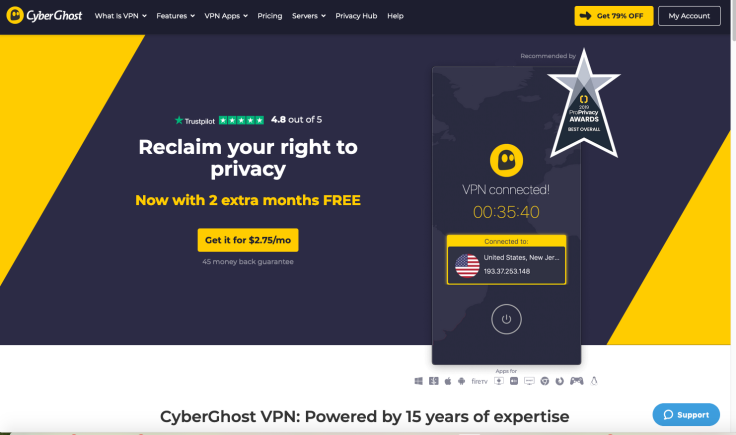
We live in a connected world where we transfer a mind boggling amount of data every day. According to Visual Capitalist, in an average internet minute in 2019,188 million of emails were sent, while Google processed 3.8 million search queries -- and on top of that, there's the data shared on social media, financial sites, and e-commerce. While you may think your data is just a drop in the bucket, that drop is gold to hackers and phishing schemes who sell or steal that data for their own nefarious uses. Protecting your data is where a VPN (Virtual Private Network) comes in.
VPNs are used to secure public WiFi hotspots, hide your IP address, and make sure your browsing queries remain private. And now that so many people are working remotely, companies may want to set up a VPN on employees' personal computers, to ensure a safe connection to office networks and servers.
VPNs are more than safeguards for personal data protection, however. Other benefits can include reduced ad manipulation, removal of price discrimination (the practice of adjusting price of goods based on your location), and the ability to access online streaming services like Netflix by getting around region restrictions.
How VPNs Protect your Personal Information
When your device connects to a VPN, your online traffic is transferred over a secure connection. As you browse the internet on a VPN your device will contact each website you visit through an encrypted connection that keeps your browsing history and data inputs hidden. The VPN acts as a kind of go-between. It forwards the request for you and forward the response from the website back through a secure connection.
You can use a VPN to access servers in different countries or regions by selecting from the options your VPN provides. This allows you to gain access to local resources in the region of your choice, an especially nice feature if you are traveling and services such as Facebook or YouTube are blocked locally.
Not all VPNs carry the same features or even securities. In fact, many free VPN providers will share and sell user data to third parties (as the saying goes, you get what you pay for). An effective VPN should have the following security features: at least 128-bit encryption, anonymous DNS servers, and an absence of connection logs. After that, it comes down to which features are most important to you.
With these parameters in mind, here are 10 VPN providers that stand out. While prices and subscription plans may vary (and are subject to change), the VPNs on this list all offer some trial or money-day back period, ranging from 30-45 days.
CyberGhost
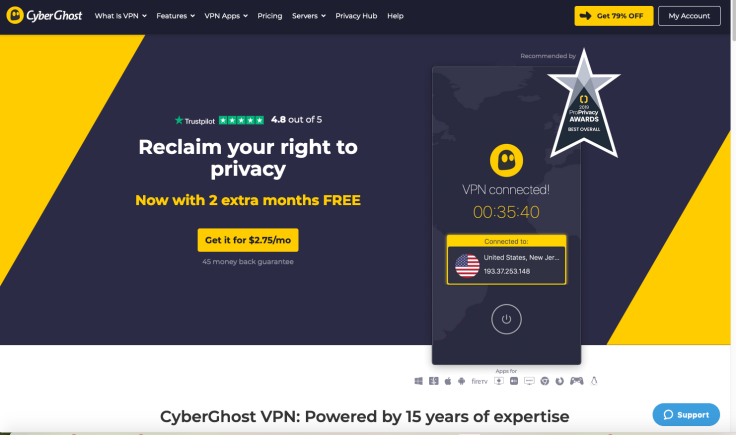
With one CyberGhost subscription, you can protect up to seven devices at the same time. With 6500 servers in more than 90 countries, you can hide your IP address with one click to easily spoof your location with 256-bit military-grade encryption at all times, allowing you to access restricted content from virtually anywhere in the world. They also offer a strict no-logs policy and support P2P and BitTorrent so you can privately share and download large data files with users you know or via torrent sites (like Pirate Bay) with users you don't.
Surfshark
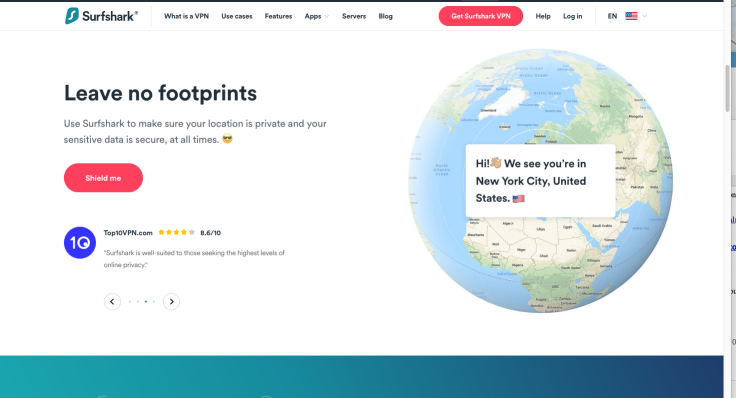
One of the standout features of Surfshark is its unlimited device support. Plus if you are tired of being overrun with ads, it offers ad-blocking and tracker-blocking. For businesses, the feature to whitelist websites -- that is, allowing ads to appear on them -- could be a real selling point. With a growing list of servers (up to 1,700) in 63 countries, a strict no-logs policy, and P2P support, Surfshark also comes in at one of the most affordable rates of 1.99/month when you sign up for a two-year contract.
Private Internet Access
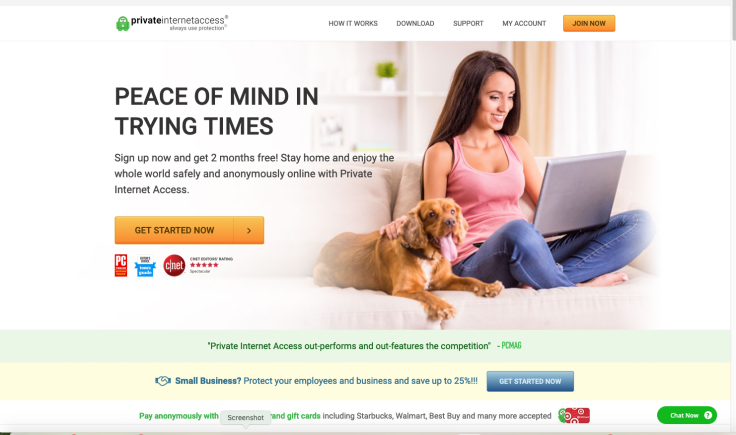
One of the longest-established VPN providers, Private Internet Access asserts that it has the largest network capacity across the globe to provide the highest speeds and most encryption. You can support 10 devices at a time with one contract and access 3300 servers in nearly 50 countries. They also have a robust knowledge base and 24/7 customer support.
IPVanish
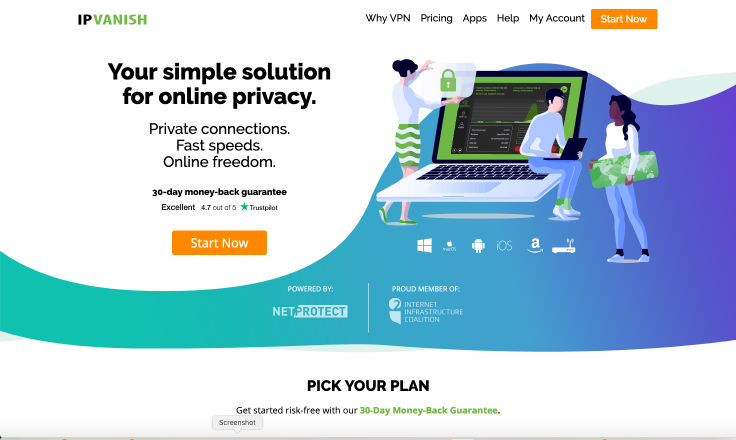
Two things really stand out about IPVanish. The first is the option to include a secure, encrypted cloud storage plan with its SugarSync integration. The second is support of the open-source streaming app Kodi. These two plugins make IPVanish particularly versatile for the user. The provider's service comes with 10 simultaneous VPN connections and unlimited installations.
ExpressVPN
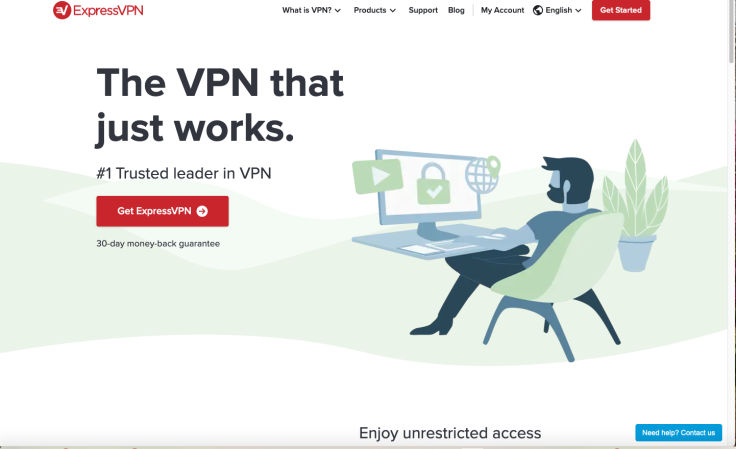
The name says it all: Express VPN is known for its high-speed quality, making it more reliable when it comes to streaming HD videos while also ensuring your protection. Offering 3,000 VPN servers in 94 countries, ExpressVPN supports more location security than most on the list, and extra-strength encryption with its AES-256 cipher and a 4096 RSA key. User-friendly apps are available for all major devices and operating systems.
Hostpot Shield
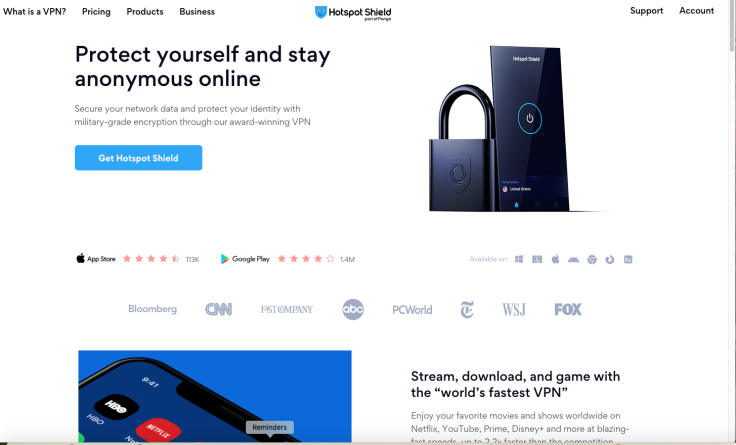
Another competitor in speed, Hotspot Shield has earned top ratings for download and streaming. But it is worth noting that it does not support P2P or BitTorrent, or the OpenVPN protocol. Instead it limits its support to its proprietary Hydra protocol. Proprietary tools can be a red flag for some, since support is not open source.
PureVPN
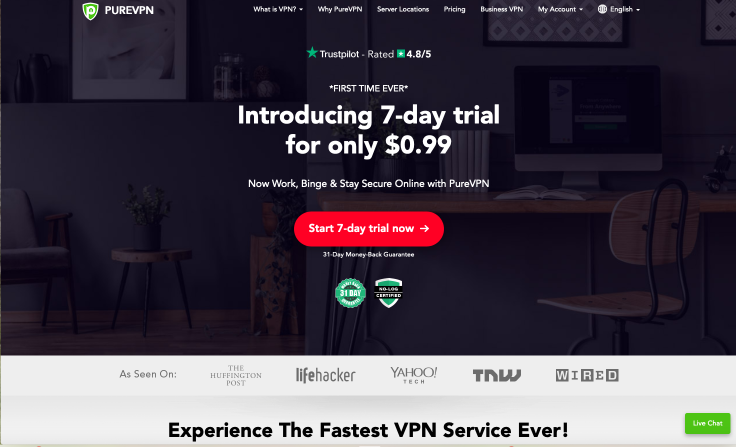
PureVPN was the first VPN service to implement the GDPR regulations in Europe, demonstrating commitment to privacy and security. They offer 10 multi-logins and also a split tunneling feature which is allows you to route VPN network traffic without impacting your local network and connected devices.
HideMyAss
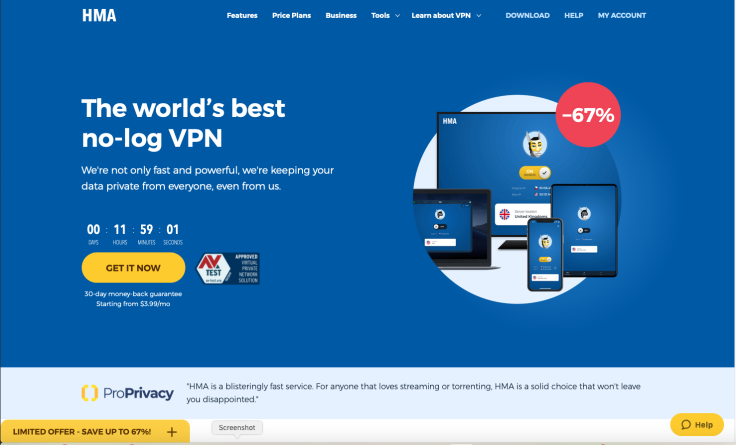
What makes HideMyAss stand out -- aside from its saucy name -- is its Lightning Connect feature which optimizes the VPN server to ensure a fast, stable connection no matter where you are. The downside is, compared to many others on this list, this VPN only supports 5 connections at once.
VyprVPN
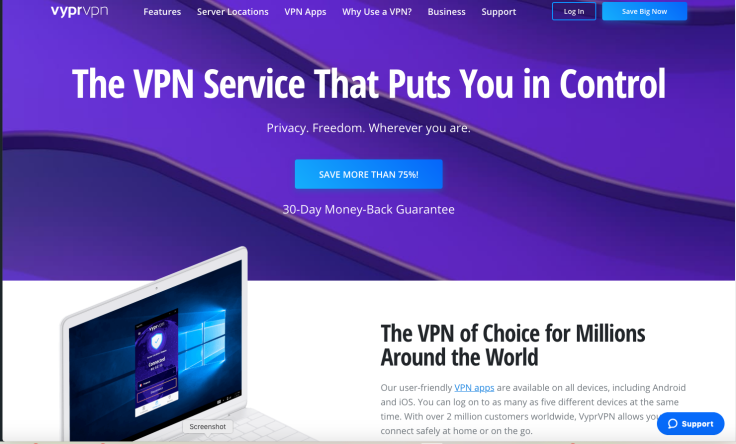
Boasting the largest bank of IP addresses in the industry, VyprVPN owns, engineers and manages more than 200,000 servers. This is a standout feature, as many other VPN providers rely on third-party companies to host their servers. This central-ownership model prevents any of your data from falling into the wrong hands. The company offers a wide range of VPN protocols, including its own high-performance Chameleon connection.
NordVPN
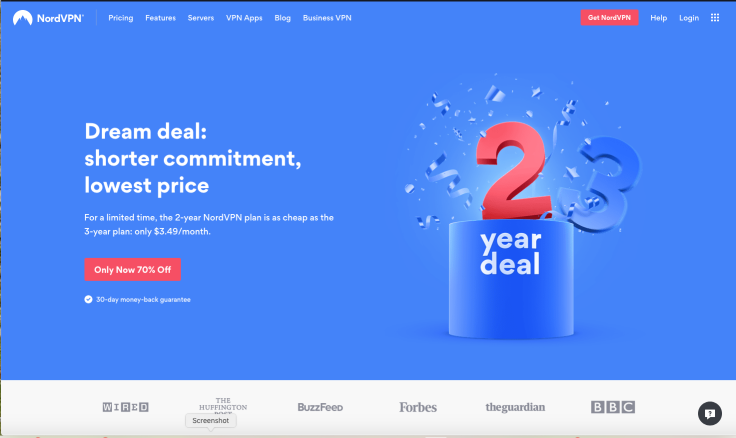
Nord has been in the security business for a long time, so it is easily one of the most recognized brands in the VPN playing field. Supporting 6 devices simultaneously including encrypted proxy extensions for Chrome and Firefox, Nord is another player offering a large server selection with access to more than 5200 NordVPN servers in 59 countries.











